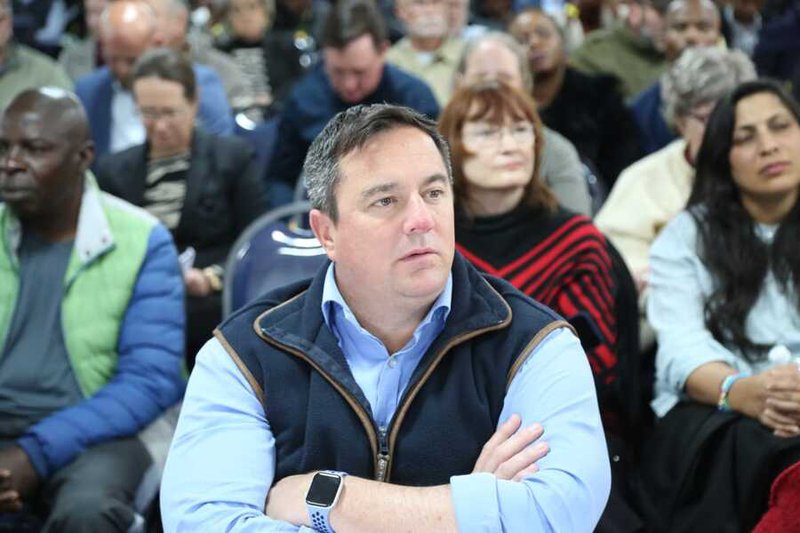Steenhuisen announces overhaul of animal health system
Updated | By Mmangaliso Khumalo
Agriculture Minister John Steenhuisen has announced sweeping reforms to South Africa’s animal health and disease control systems, following mounting pressure from the livestock industry over the country’s continued battle with foot-and-mouth disease (FMD).

Speaking at the opening of a two-day national FMD Indaba in Pretoria on Thursday, Steenhuisen said the government was no longer willing to rely on outdated systems, fragmented authority, and short-term measures to contain one of the most economically damaging animal diseases in the country.
"Exports of clove-in-hoofed animals and their products were suspended or slowed, jobs were lost, and of course the reputational damage to our animal health system is one that will take time and action and conscious steps to repair."
The Indaba follows the confirmation of a new FMD outbreak on a commercial farm near Kroonstad in the Free State last week.
As of July 2025, there have been 270 reported outbreaks of FMD across five provinces, with KwaZulu-Natal being the hardest hit.
The minister said that, despite FMD outbreaks being localised, South Africa’s entire livestock industry had paid the price due to blanket trade restrictions from international partners who lack confidence in the country's disease control capabilities.
In one of the most notable announcements, Steenhuisen confirmed that two highly experienced veterinarians—Dr. Emily Mogajane and Dr. Noms Mnisi—have been appointed to lead the development of a comprehensive national regionalisation framework.
This plan aims to define and operationalise disease control zones across all major livestock sectors.
"Every single credible trading nation in the world understands the principle of regionalisation," he said.
"However, we remain behind in establishing, certifying, and maintaining disease control zones that can be recognised and understood by our international partners."
Steenhuisen attributed the lag to poor institutional coordination, a lack of legal clarity, and weak capacity in national and provincial structures.
The minister also acknowledged government’s own failings, particularly the inability of Onderstepoort Biological Products (OBP) to produce vaccines fast enough to contain outbreaks.
"The National FMD Vaccine Bank was depleted, the production cycle misaligned with outbreak realities, and OBP currently lacks the infrastructure to produce FMD vaccines at the scale and speed required."
The country was recently forced to import FMD vaccines from Botswana—a move the minister called a stopgap, not a sustainable solution.
To prevent future emergencies, Steenhuisen said the government was working to stabilise OBP and secure forward-looking supply contracts to maintain minimum vaccine stock levels.
He also called on the livestock industry to invest in a nationally managed but jointly funded vaccine bank for all controlled diseases affecting trade and production.
-Public-private partnership seen as key to success-
Throughout his address, Steenhuisen emphasised that the state could not tackle FMD alone and that collaboration with industry was vital.
"The message is very clear. The state cannot do it all on its own. That's why partnerships for growth are one of the key pillars of the agriculture department," he said.
The minister encouraged the red meat, dairy and game sectors to support government efforts by co-investing in vaccine procurement and cold chain logistics.
-Rural infrastructure investment on the cards-
As part of efforts to enforce animal movement controls and reduce illegal trading, Steenhuisen said government would earmark funding this financial year to establish feedlots and abattoirs within disease protection zones—particularly in Limpopo, KwaZulu-Natal, and Mpumalanga.
"As long as animals are forced to be moved illegally because of the absence of local abattoirs or feedlots, we will never be able to enforce movement control effectively," he added.
The minister also called for greater investment in scientific research and innovation to improve biosecurity and climate resilience in livestock production.
Steenhuisen pledged to work with the National Agricultural Marketing Council to earmark statutory levies for animal health research.
He commended the turnaround at the Agricultural Research Council (ARC), which recently posted its first surplus in over a decade, and called for greater collaboration between ARC and institutions like the University of Pretoria’s Biosecurity Hub.
Steenhuisen concluded his remarks by announcing the appointment of a task team to consolidate recommendations made at the Indaba and turn them into a time-bound operational plan.
"Let us commit not only in theory, but also in budget and action plans to building a livestock economy that is competitive, credible, and secure".
ALSO READ

MORE ON JACARANDA FM
Show's Stories
-
Easy ways and hacks to help clean your ceiling fan
It's never too early to get a jumpstart on spring cleaning and prepare f...
The Drive with Rob & Roz 29 minutes ago -
The 7 most exclusive bank cards in SA and their cost
And how much you need to earn in order to put one in your wallet...
The Drive with Rob & Roz 29 minutes ago